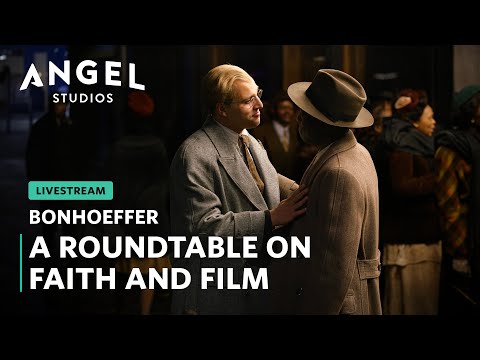Moral clarity matters, but capturing it on screen can be daunting.
“Bonhoeffer. Pastor. Spy. Assassin” walks that tightrope, more often than not delivering what an unconventional biopic should. The film distills German pastor Diedrich Bonhoeffer’s faith into a sturdy, impeccably crafted yarn.
Writer/director Todd Komarnicki (“Sully”) is handcuffed by thematic elements that translate poorly to the big screen. His film remains a clarion call for courage in a time teeming with cowardice.

Dietrich Bonhoeffer (Jonas Dassler) grew up in a bustling German home in the 1920s. The death of his older brother left him reeling, cementing a pacifism that aligned with his belief in God.
World events would swarm that spirituality. He recoiled at the Church for absorbing the rise of Adolf Hitler, letting its pews double as indoctrination camps. Bonhoeffer struggled to balance his faith with a country veering into fascism.
Should he speak out and risk being ostracized by his peers? Would staying in Germany paint a bright red target on his back? What, if anything, could he do to slow the Nazi movement as it threatened both the Jewish people and the greater world order?
This isn’t a cookie-cutter biopic nor a hagiography. Dassler’s character stumbles time and again, unsure how to use his growing influence to wrest Germany from Hitler’s grip.
Dassler grows into the role as the story progresses. It’s a big part, not just a main character but a figure who embodies inner strength and integrity. The actor keeps Bonhoeffer’s humanity within reach, refusing to deify him or diminish what he achieved in a mere 39 years.
Production values prove more than up to the task at hand. John Mathieson’s cinematography captures the emotional stakes, a bleary canvas evoking the impossible odds facing the title character.
View this post on Instagram
Komarnicki deploys a cast of lesser-known actors who take turns rising to the occasion. The subject matter invites caricature, from the presence of an on-screen Hitler to the casual hate deployed by Nazi foot soldiers. The writer/director refuses to play down to stereotypes.
A small but haunting scene finds a Nazi official showing Bonhoeffer a grace that stops the film cold. Even in the darkest of moments a beam of light can appear.
Just beautiful.
The film deploys a non-linear approach that works against the film’s narrative pull. Some scenes find Bonhoeffer behind Nazi bars, a creative choice that might work in other biopics.
Not here.
The very nature of Bonhoeffer’s legacy makes is challenging to duplicate on screen. He’s neither a gun-totting hero nor a man of pure theology. That, plus the tortured arc of his later years keeps “Bonhoeffer” from building to a cinematic-worthy finale.
One example? A key scene late in the film finds Bonhoeffer rehearsing a searing sermon. The seats are empty, and the power of his philosophy echoes across a still amphitheater.

It sounds insincere to praise a movie for capturing moral heroism. It’s as facile as pointing to an armed Nazi with a sense of self-righteous glee. See? He’s the bad guy!
“Bonhoeffer” makes us cherish the main character’s moral stands, from stemwinder speeches to tiny acts of courage which inspire those around him. Credit Dassler for holding these sequences together. His approach to the role is to find the inner turmoil and let is gently rise to the surface.
The film’s spicy title overplays the thriller aspects, even if there’s an element of truth to each word. “Bonhoeffer” is a literal profile in courage, arriving at a time when denouncing anti-Semitism on university campuses is out of the reach of many academics.
The pastor’s sense of decency, alas, is needed once more.
HiT or Miss: “Bonhoeffer. Pastor. Spy. Assassin” salutes a Holocaust-era hero who never needed a gun to change hearts and minds.
The post ‘Bonhoeffer’ – Powerful Profile in Moral Courage appeared first on Hollywood in Toto.
from Movies - Hollywood in Toto https://ift.tt/ThHjigQ

0 Comments: